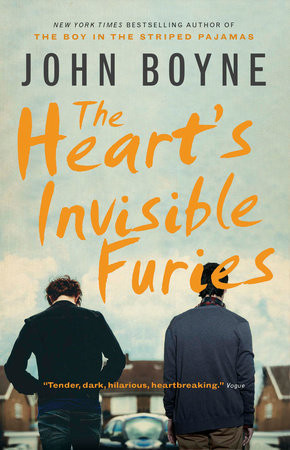Book Review: The Heart's Invisible Furies
I would like to preface this review by outlining my limited
knowledge or experience when it comes to the history of Ireland. I know it is a
proud, beautiful country with a deep and complex history but I cannot claim to
know the deeper intricacies tied behind growing up there and facing the
prejudices which stem from its culture or intrenched Catholic religion. I make
this a key point to address because my latest read puts a magnifying glass on
these elements and analyses them in a deep and unapologetic manner in aid of
telling one of the best contemporary dramas I’ve ever had the pleasure of
reading. That story comes from one of
the most well-regarded authors of our time, John Boyne and it’s titled The
Heart’s Invisible Furies.
Taking place across several decades between the early 1940’s
and 2010’s, the narrative of the Heart’s Invisible Furies follows the central character
Cyril Avery, a closeted homosexual coming to terms with his sexuality within
the confines of an Ireland ruled by religion and bigoted prejudice. An orphan since
birth, Cyril spends a lot of his early life living with a set of adoptive
parents who spend every waking minute reminding Cyril he isn’t their true biological
son. As he grows older Cyril begins to discover he doesn’t share any interest
in girls like his school friends and soon begins to indulge in sexual
activities with other men. What follows
is a deeply tragic traversal through the decades as Cyril struggles to come to
terms with his sexuality through the different periods of time and his deeply
complicated relationship with the friends and family that gravitate around him.
To consider the fact this story spans across several decades,
it’s mightily impressive just how detailed and structured its narrative comes
across throughout it’s page count. Cyril
as the main conduit for the story comes across as considerably complex and
nuanced but he’s ultimately a kind hearted man who you will feel a great sense
of empathy for as you follow him along his journey through the years. His struggles with defining his homosexuality
are layered with so much emotion. It’s
interesting to note John Boynes himself is open about his own homosexuality and
he too grew up in Ireland and noted his own struggles navigating such an oppressive
environment while also coming to terms with that. I can only imagine that’s why the core quality
of this story feels so extensive, as he likely imbued it with a lot of his own
personal experience. Multi-period narratives can often jump about too quick
without much devotion or care on how it utilizes its period, in this books case
though Boynes executes the narrative portions across their relevant periods
with amazing precision. The periods are
relevant to Cyril’s life, so it’s worth reflecting on how well-ingrained they
feel within the narrative and how well utilized they are in respect to it.
The tone behind the book is definitely mature, but it never risks
going into immaturity for the sake of it.
When we’re talking about stuff like homosexuality, family drama as well
as religious and cultural prejudices, there’s no easy way to transcribe the
themes associated to these elements in any other way. I think the fact Boynes is able to deliver
that dark complexity behind these themes but also know when to add levity and humour
to the narrative is another example of why he’s considered such a profound
writer. It’s a book with such a
complicated mixture of emotions but you never for one minute feel it’s missing
the mark in projecting these themes across properly. As for pacing, you never
feel the length of this book which is impressive when you consider its
extensive page and word count. That’s
the sign of a truly engaging story, one where you feel enthralled by its story
that you never notice how many pages deep you have left to get through.
The Hearts Invisible Furies is a truly one-of-a-kind book on all accounts. I have developed a keen preference for contemporary drama narratives and this book really encapsulates everything I love about them. It’s a story which feels genuine in the way it puts the world and its vial prejudices on trial against the honest and complicated realties of growing up homosexual in Ireland. It’s a book which treats the reader which proper respect in regards to rewarding their engagement with deeply compelling subject matter and something to really go away and think about by the time they put the book down.



Comments
Post a Comment